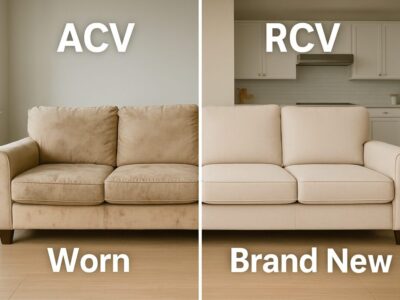The Hidden Traps in Home Insurance Policies You Probably Overlooked

When was the last time you actually read your home insurance policy cover to cover? If your answer is “never” or “only after something went wrong,” you’re not alone. Policies are filled with fine print and legal jargon that can make or break your claim. Hidden clauses, exclusions, and sub-limits often leave homeowners blindsided when disaster strikes.
Let’s break down the most common traps hidden in homeowners insurance policies—so you can catch them before they cost you thousands.
The “Wear and Tear” Exclusion
One of the most frustrating pitfalls is the wear and tear exclusion. While policies are meant to cover sudden and accidental losses, insurers frequently argue that the real cause was deterioration, corrosion, or lack of maintenance.
For example, a burst pipe should be covered. But if the insurer claims it failed due to age or corrosion, they may deny your payout. Regular maintenance records and photo documentation can help prove that damage was sudden and not caused by neglect.
Water Damage Coverage Gaps
Water damage is one of the most common homeowner claims—but not all water events are covered. A sudden burst pipe? Typically included. Slow leaks, seepage over time, or groundwater entering your basement? Usually excluded. Flood damage is another trap—it requires a separate flood insurance policy.
Watch for policy terms like “repeated seepage” or “surface water.” These are commonly cited when insurers deny water-related claims.
Personal Property Sub-Limits
Your policy may say your belongings are covered, but hidden sub-limits can cap payouts on valuable categories. Jewelry is often limited to $1,500–$2,500. Firearms, collectibles, and cash usually fall under $2,000. Even electronics may have per-item limits.
If you own high-value items, consider scheduling them separately or adding endorsements for full coverage. Without this, you risk major losses during a theft, fire, or water damage event.

Ordinance or Law Coverage
Many homeowners overlook Ordinance or Law coverage, which pays for bringing your property up to current building codes after a loss. Without it, insurers may only pay to rebuild your home as it was—leaving you to fund required upgrades.
For example, if electrical or structural codes have changed since your home was built, you could face thousands in out-of-pocket expenses. Review your policy to see if this coverage is included or optional.
Actual Cash Value vs. Replacement Cost
One of the most important distinctions is whether your belongings are covered at Actual Cash Value (ACV) or Replacement Cost Value (RCV).
ACV: Pays the depreciated value of your damaged items.
RCV: Pays the cost to replace them with new, similar quality.
If your policy defaults to ACV, you might receive only a fraction of what it takes to replace furniture, appliances, or electronics. Choosing RCV coverage ensures your payout reflects real replacement costs.

Strict Claim Deadlines
Every policy enforces strict timelines for filing claims and submitting documents. Terms like “prompt notice” may not be clearly defined, but insurers often enforce them rigidly. Proof of loss forms may need to be filed within 60 days, and missing the deadline can jeopardize your entire claim.
To avoid problems, notify your insurer immediately after a loss, keep records of all communication, and submit documentation promptly.
Conclusion
Homeowners insurance is meant to protect you—but only if you understand the fine print. From wear and tear exclusions to hidden sub-limits, code upgrade gaps, and the difference between ACV and RCV, these policy traps can dramatically reduce your payout.
By reviewing your policy now, clarifying coverage details, and keeping thorough records, you can avoid costly surprises and make sure your insurance actually works for you when you need it most.
